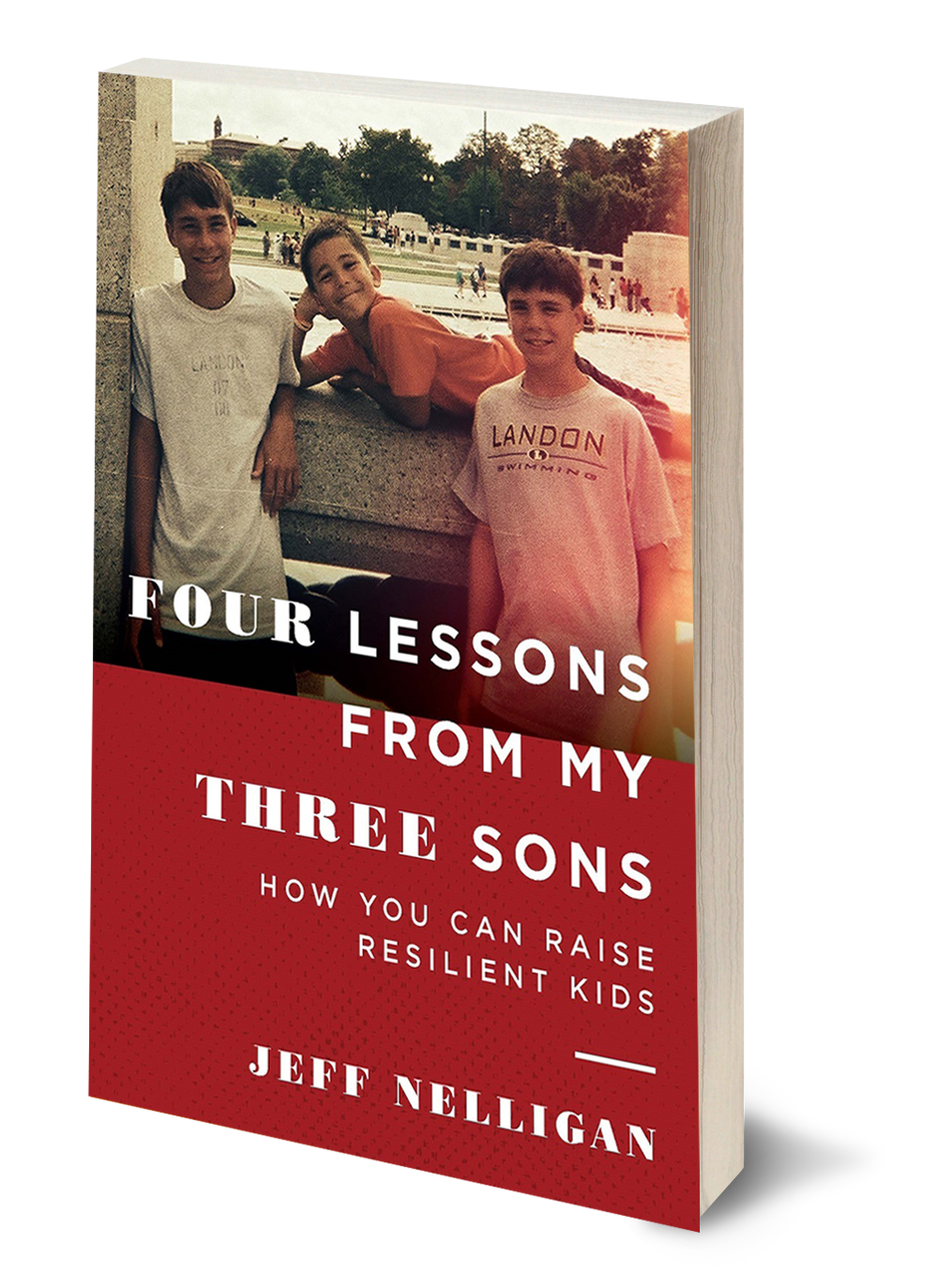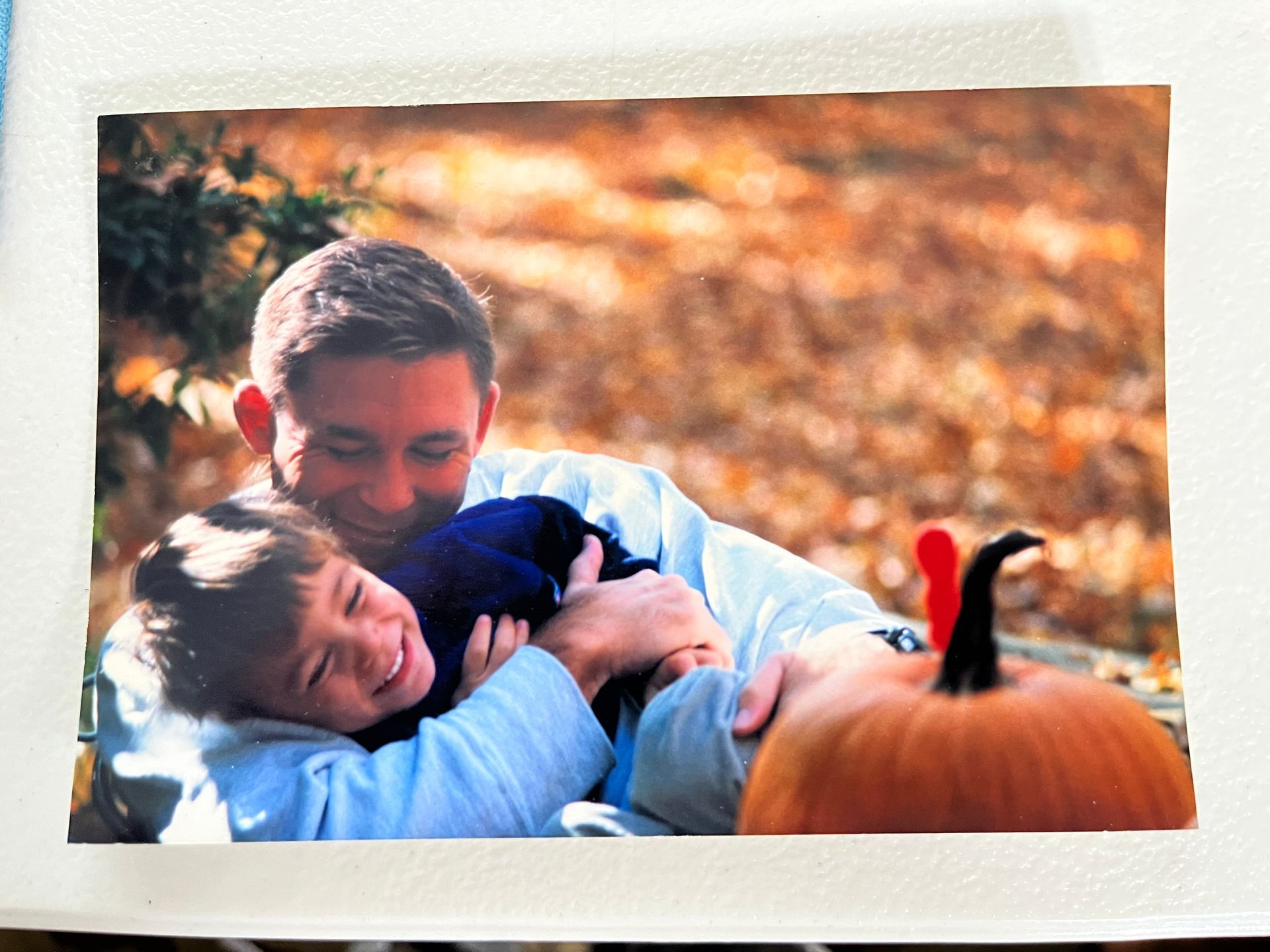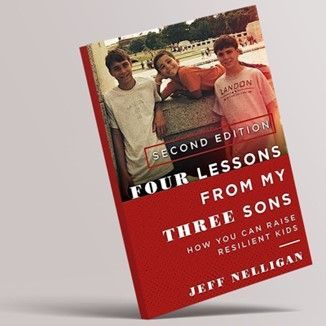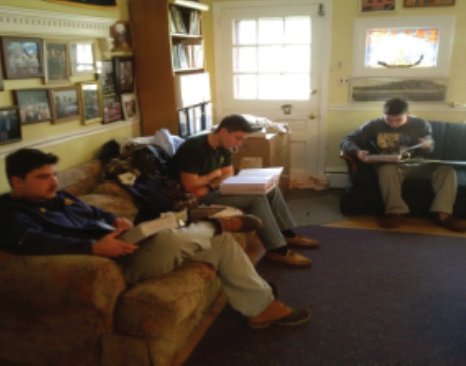Inspire self-respect
"Don't ever be like that jackass."
I once saw a kid leave a football field with his Mom hold- ing his helmet, his Dad
holding his big equipment bag and the kid, walking ten feet ahead of them, was
texting furiously on a cell phone. My middle boy had just played in the same game
and all four Nelligans were ambling back to the parking lot. I stopped them and
said “Wait up, guys. Check out that scene,” and nodded at zombie screen-boy and
the two Sherpa parents. I pointed defiantly at the kid and said, “Don’t ever be like
that jackass.” Yes, Dad bringing it in hot. But my boys – and several chuckling
parents and kids within earshot – knew exactly what I meant. Mom and Dad are
humping his gear behind him while he’s buried in his phone. He can’t even be
bothered. Total and complete jackass.
In two decades of being around kids I’ve concluded - perhaps unscientifically –
that there are two basic versions of the jackass child.
First, there’s the aforementioned – rude, self-absorbed, selfish. He or she barely
acknowledges adults, including their own parents, in social situations and often
uses monosyllabic answers when spoken to. She or he is always the critic and
downer among friends, everything is stupid or boring. He or she is constantly
staring at, talking into, or pounding the screen of a phone. This kind of kid reeks of
resentment – and it’s found in all socioeconomic strata - the privileged, the middle
class, the hardscrabble.
The second kind of jackass is wildly undisciplined, always disobedient, the one
who simply will not follow basic directions. This child has “no boundaries” in the
fashionable phrase. They talk when they shouldn’t and ignore rules and can be
counted upon to disrupt every situation.
I know this kind of kid well. I was a rec league basketball coach for one of my
son’s teams and for a very short time we had such a kid on the squad. Let’s call
him Mark. At the first practice he immediately began interrupting me and my
assistant coach, another Dad. Mark then split away from the opening lay-up drills,
running to the other end of the court with one of the balls.
Throughout the rest of the practice he was shoving kids on the court in mad dashes to grab the ball and
would shoot the ball whenever he got it – sometimes from 25 feet. When
admonished, he’d just grin and giggle. (And I’ll say it right here: No, he wasn’t a
kid with Asperger’s Syndrome nor did he have ADHD nor did he take medication
for anything. The parents of boys joining the league were required to disclose all
that).
Simply, Mark was just a major-league brat and half of the first practice was spent
reacting to his misconduct. My assistant coach and I were frustrated beyond
measure. After a second practice featuring his mayhem, I’d had enough. I went
over to Mark’s Dad. “Hey Pat, sorry about this but Mark’s going to have to find
another team.” Pat smiled conspiratorially as if this was all a little game and would
just go away. Then he said, “I know he can be mischievous at times. And after all,
this is just a rec league.” “Yeah,” I responded, “A rec league, not a babysit- ting
league.”
Of course, the guy flashes hot. He knows his kid is out of control. “Mischievous”
is probably the stock term he uses all the time when the kid is called out. I’m not
giving him a news flash. But it’s obvious there have never been repercussions – no
one has ever pushed back. I do and I reiterate: “Mark is off the team.” Pat looks at
me and my grim assistant and says, “But you can’t do this!” “I just did” I reply.
“He’s dragging down our eleven other kids who want to learn and play the game.
Don’t bring him back.”
A few months later I was at the same son’s school volunteering for a student
assembly. A group of parents and I were in the building’s main corridor and all the
kids were lined up in the hallways outside their classrooms, waiting to walk to the
auditorium. I saw my son in one of the lines and gave him a wink. Suddenly,
running through the foyer comes our pal Mark; a teacher’s voice echoes “Stop
right now!”
The kid pays no heed and continues out of sight down another hallway. The
parents standing with me are shocked; they obviously don’t know the kid. I look
back at my son in line and lock eyes with him. I point to where Mark has
disappeared and I slowly mouth the words: Don’t. Ever. Be. My kid doesn’t even
grin. He just nods.
There are plenty of jackass kids in the world. They are bullies or sneaks who egg
on other kids to do something patently wrong. They are the boys who are overtly
creepy to girls and girls who are uncommonly mean to other girls. They’re foul-
mouthed and rude. Their behavior stymies teachers, peers, coaches, their parents.
I’ve seen more than enough Marks and every time I did my sons heard the phrase
above, loud and clear. Even better, they were not afraid to use it when they saw
obvious jerks. All four of us judged the bad and we always knew why we were
doing so.
And always – because remember, the real world never fails to instruct - there is the
bonus-round. That’s when the jackass kid, in full view of spectators, has a cringe-
worthy episode involving abject rudeness to a parent or even better, a full-blown
argument. Sure, it’s excruciating to witness but counter-intuitively, it’s just the
spectacle your kid needs to see.
Once after my eldest and I witnessed a public kid- driven blow-up with his father,
my son said sorrowfully, “Man, I feel bad for that dad.” “I don’t,” I responded.
“He could have stopped that jive a long time ago and didn’t. This is what he
deserves.” My son looked at me sharply and a moment later said, “I get it.”
Sometimes to my sons’ glee, sometimes to their dis- comfort I was always faithful
in identifying that one kid who represents everything wrong. “Don’t ever be that
jackass.” When you see it, say it and your won't.











